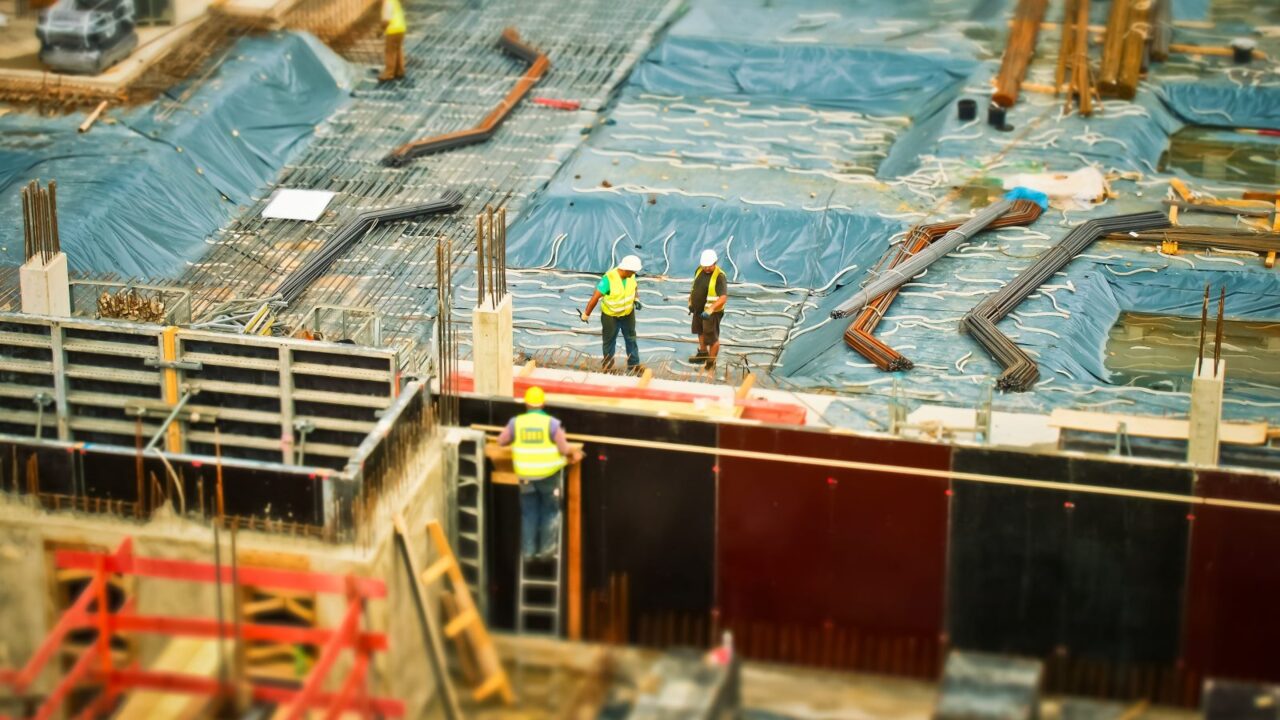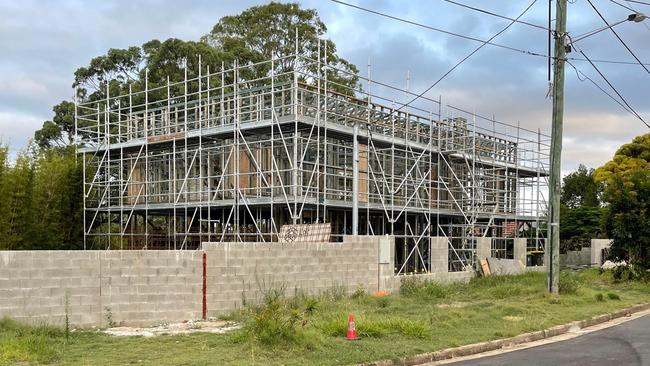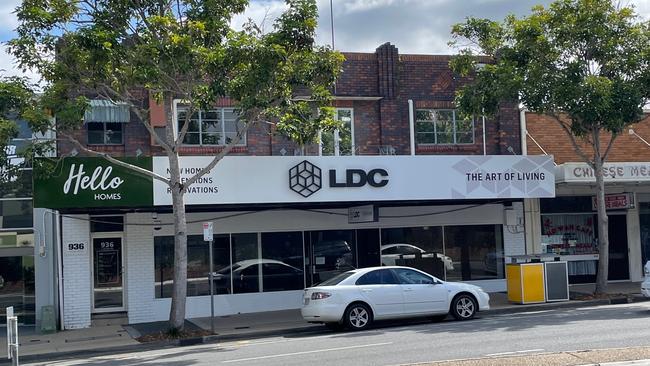Australian Institute of Quantity Surveyors say construction costs won’t improve in 2023
As disgruntled customers of Brisbane’s latest building firm collapse consider their options, the construction industry has warned that costs are continuing to rise.

Pricing pressure and labour shortages will continue to hurt the Queensland construction industry in 2023 with a wave of insolvencies expected to grow as the hot housing market cools down.
The Australian Institute of Quantity Surveyors (AIQS) Building Cost Index is forecasting a further 4.3 per cent increase in building costs to October this year. Electricity and interest rate cost hikes, and new building standards were adding further strain to an industry with rapidly shrinking margins.
LDC Pty Ltd, based in Holland Park in Brisbane’s south, appointed an administrator in early January leaving 48 building sites across South East Queensland and just over $7m in owing to more than 150 creditors. It’s been a bad start to the year for the sector, nationally, with Melbourne builder Hallbury Homes recently calling in administration with almost 400 creditors and debts of $6m.
AIQS vice president Simon Squire said the construction sector remained under pressure with insolvencies increasing month-by-month.
‘Typically from a construction perspective they make up around 20 per cent but this (financial) year it has increased already to 29 per cent and that’s significant,” he said.
“You can expect consistent volatility and multiple surprises and a fractured trajectory for the short term.
“We haven’t returned to pre Covid where the market was much more predictable. We don’t know what’s around the corner with Ukraine and China and that’s the surprise and some markets are falling and some are rising so there is no consistent line. So the pressure will be on in the Queensland market.”

Construction costs climbed 11.9 per cent in 2022 according to CoreLogic’s Cordell Construction Cost Index, one of the biggest increases on record.
CoreLogic construction cost estimation manager John Bennett said the 2022 result was significantly higher than the previous year’s 7.3 per cent growth.
However, the quarterly growth rate of 1.9 per cent showed a dramatic easing in the index following a 4.7 per cent spike in the September quarter.
“The industry has been through a very challenging 18 months to two years, with extreme periods of volatility in pricing due to restricted domestic supply chains, material and labour shortages,” Mr Bennett said.
“The biggest contributors currently are volatile timber prices, with fluctuations in structural timber costs and general increases to timber products. Prices for metal products such as gutters, lintels and fixings, used for roofing and structural purposes continue to increase, and concrete values also remain unstable,” he said.
“Petrol rises are affecting cartage and delivery costs, notably concrete, however larger items such as rainwater tanks are also affected. Gravel, aggregates and fill have increased, possibly affected by the rise in petrol prices, while increasing costs for appliances and fittings have also been noticed.”
Mr Bennett doesn’t expect 2023 costs to continue to grow at the same rapid pace as they have done in the past 18 months as consumers, builders and suppliers proceed with caution against a backdrop of rising rates and inflationary pressures.
Meanwhile, liquidator Bill Karageozis, of Mcleods Accounting, is still continuing his investigation into LDC’s collapse.
Of the outstanding projects, the majority are well advanced with 14 at the enclosed stage, 13 at the fixing stage and six at practical completion.
Ethan Holmes, who had contracted LDC to build a custom designed five-to six bedroom home at Wavell Heights, said the slab was going to be put down in December.
“I thought there was a good company and everything was going alright and the first I heard about it was when I got an email from the liquidator,” he said.
“I’m paying weekly loan repayments and it might take months to find a new builder.”
LDC has two directors Azemm Dannaoui and Hou Ming Law. The company is owned by Mr Dannaoui and Edison Law Pty Ltd. Messages left at LDC’s head office and emails to Mr Dannaoui were not returned.
According to an ASIC search, Mr Dannaoui and Mr Law are also directors of Hello Homes (Qld) which is still operating. Edison Law Pty Ltd and Mr Dannaoui were joint shareholders in the business. Hello Homes operated from the same Logan Rd building that LDC had occupied.

The Queensland Building and Construction Commission was working with homeowners impacted by LDC’s collapse.
“The QBCC is in the process of contacting homeowners who have Queensland Home Warranty Scheme policies as a result of contracting with LDC, to provide them with information and potential assistance by the scheme,” a spokesman said.
“Depending on the stage of their project, eligible owners who contracted with LDC Pty Ltd may potentially be covered for a refund of their deposit, or to have their project completed.”
The spokesman said that in the 2021-22 financial year, more than 95 per cent of all claims approved under the scheme were fully compensated.
In the 2021 calendar year, the QBCC approved payments for 608 claims for defective building work under the Scheme. In that year, the QBCC also approved payment for 194 claims of non-completion (including refunds of deposits) and 115 claims for owners whose properties were affected by subsidence.
In 2022, there were 522 claims approved under the Scheme for defective work.
In a year which saw several large building companies affected by factors including the Covid pandemic, natural disasters and global supply line issues, 717 payments were approved under the Scheme for non-completion of work (including refunds of deposits).
The scheme also helped owners whose properties were affected by subsidence in 2022, through the approval of 98 claims.







To join the conversation, please log in. Don't have an account? Register
Join the conversation, you are commenting as Logout